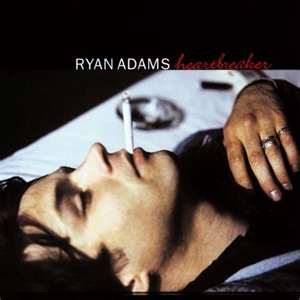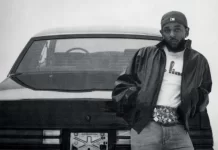Whether they intend to create a positive or negative portrait of the genre, most forms of country music can be associated with the image of the hard-living, alcoholic musician channeling his emotions of sorrow and regret through an acoustic guitar. In reality, the sounds most often played on country music radio stations is slick, over-produced Nashville ilk.
Like mainstream rock music, mainstream country music is typically extremely unauthentic and recorded by bands that possess very little creative control of their musical output. Therefore, when a talented, honest musician by the name of Ryan Adams stood up to the mantle in 2000 to record Heartbreaker, an album that actually represents the ideals of its genre, the result was a breath of fresh air to a musical style that was and still is suffering from an absence of lyrical sincerity.
Adams’ honest lyricism contrasts with the insincere platitudes of modern Nashville, which is fraught with loud, poorly written pop-country lyrics and obnoxiously repetitive clichés honoring God, country, and family with blind optimism. Adams, on the other hand, quietly condemns himself for his inadequacy as a partner with lyrics alluding to fairy tales and Greek mythology (the unachievable, idealistic fantasy of Cinderella and the tragic story of Icarus) on “To be the One.” On this mournful number, Adams expertly establishes himself in the tradition of Gram Parsons. Indeed, his soulful moan on the very next track, “Why Do They Leave?” sounds every bit as achingly beautiful as Parsons’ on “Love Hurts.”
Despite its noble effort, Heartbreaker, in theory, should be almost intolerable. Almost every song on the album revolves around Adams’ groveling about loneliness and heartbreak. Even less promising, almost every song possesses extremely limited instrumentations, with the acoustic guitar always the central focus. In theory, it should be an unlistenable, stereotypical country album.
Instead, these perceived limitations are actually the keys to why the album functions so well. Few country albums flow well from start to finish. By tightly focusing his songs around only a few basic central themes, the album works perfectly from the causal opening conversation of track 1 to the aching last guitar notes of “Sweet Lil Gal (23rd/1st).”
There are no overly-ambitious, unauthentic numbers attempting to make grand statements about love and loss. Instead, Adams chooses to subtly express the intricacies of his depressed state, making his music instantly relatable. Every slight addition or adjustment to a song’s musical arrangement yields stunning results, from the soulful harmonica of “Come Pick Me Up” to Emmylou Harris’ angelic, backing vocals on “Oh, My Sweet Carolina.”
Although most of the album effectively channels the brilliance of the heartbroken, hard-living Gram Parsons and Hank Williams, the rocking “Shakedown on 9th Street” and instant classic “To be Young” stand as obvious highlights on an album that boasts no lowlights and only a few midlights.
On “Shakedown,” Adams demonstrates his ability to depart from melancholy country and create gritty rock ‘n’ roll in the vein of Mick Jagger and Elvis Presley. From the opening guitar hook, “Shakedown” instantly grips the listener, but it is just before the chorus when the instruments drop out, leaving only Adams’ growl, that he fully unveils his ability to craft a rollicking classic.
Even then, the Bob Dylan-esque rocker “To be Young” stands as the clearly superior track. The consummate alternative country song, the song’s hard-driving acoustic guitar chord progression and hand-clapping beat coupled with Adam’s vocals—vocals that combine both the bitterness of Adams’ country numbers and rock ‘n’ roll swagger on “Shakedown”—establish the song as, in this humble reviewer’s opinion, one of the strongest songs of the last decade.
Unfortunately, Adams has not created an album anywhere near this strong since its release. But, in his defense, few artists could create an album this brilliant to begin with. However, Adams’ brilliance has been manifested in several moments throughout his career, including his haunting cover of Oasis’s “Wonderwall,” the catchy pop single “New York, New York,” and the majority of his work with his pre-Heartbreaker band, Whiskeytown.
Heartbreaker stands out as a truly indispensable record. A country album that not only works but succeeds from start to finish is a rarity and therefore must be appreciated. With numbers as beautiful as “My Winding Wheel,” as sorrowful as “Come Pick me Up,” and as unforgettable as “To be Young,” Heartbreaker serves as the perfect introduction (and, for some, the endpoint) to the expertise of one of contemporary American music’s finest artists.






